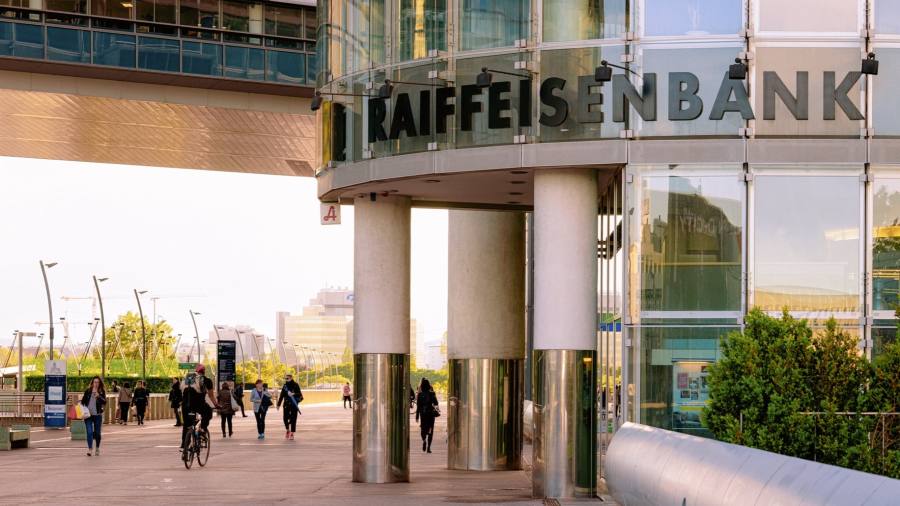
Receive free Raiffeisen Bank International AG updates
We’ll send you a myFT Daily Digest email rounding up the latest Raiffeisen Bank International AG news every morning.
Austria’s Raiffeisen Bank increased pay for its Russian staff by €200mn in the past six months — equivalent to a €22,000 payout for each employee, even as the group comes under increasing pressure to leave its controversial business in the country.
The move by the bank, which is the largest western lender still operating in the country, represents a doubling in staff costs in its Russian division compared with the same period in 2022.
Raiffeisen said the increase was “a result of higher salaries and social security costs, provisions for one-off payments and an increase in headcount”.
Headcount at the division increased less than 10 per cent.
Raiffeisen declined to provide further details.
The increase in pay for Russian staff alone represents a rise in overall group staff costs for Raiffeisen — one of the biggest lenders in central and eastern Europe — of more than 20 per cent, despite the division in the country representing less than a fifth of the company’s 45,000 staff.
Raiffeisen also operates in Ukraine. Staff costs there were flat.
The bank, which has particularly strong ties with Austria’s ruling conservative Peoples’ Party, this year pledged to accelerate plans to leave Russia, even as its operations there bring in outsized profits.
The bank is in the sights of US authorities thanks to its Russian exposure: the US Treasury department has requested thousands of documents from the bank to check its compliance with sanctions against Moscow.
“We continue to work at full speed on two options for our business in Russia: a sale and a spin-off.
“While we are working on these complex options, we are consequently continuing to reduce the business in Russia,” said chief executive Johann Strobl on Tuesday, as he presented the bank’s results for the first half of the year.
Profits at Raiffeisen’s Russian business rose 9.6 per cent to €867mn in the first six months of the year, topping an already record-beating profit in the first half of last year as the invasion of Ukraine began.
However, overall Raiffeisen’s group profits dropped 24 per cent year-on-year, reflecting tougher business conditions elsewhere in eastern Europe.
Critics accuse the bank, which has decades of history in Russia and a previously beneficial record of waiting out political criticism of it, of not being serious about winding down its Russian operations.
But like many western businesses, it finds itself in a tricky situation in Russia, where there are few options available for an easy exit, let alone one that delivers value for shareholders.
Raiffeisen cannot repatriate any of the huge profits its Russian business is currently earning. The bank has also reduced its Russian loan book by more than a third since the war began.
This year the bank explored a possible “asset swap” with Russia’s Sberbank, which had about €400mn of assets marooned in Europe.
The proposals did not make it off the drawing board, however, thanks to intense political pressure.
The bank subsequently began negotiations with two Russian counterparties to sell its arm in the country. However political turbulence in Russia and a further tightening of government restrictions on western businesses has all but frozen those talks.